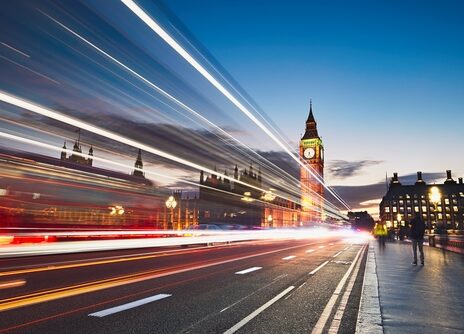
Sweat darkens the armpits of the millennial Caesar’s grey T-shirt as another funding round nears its end. Coding, not conquest, will immortalise him. The entrepreneurs of every age require a stage for their greatness, and for ours it’s not the subjugation of Gaul, but the bloodless “tech” start-up. And that’s what motivates James Drayton to start a tidal-power firm with his friend Roland Mackenzie in Alexander Starritt’s novel Drayton and Mackenzie, an attempt at a millennial epic that covers the century so far and most of its attendant disasters.
Starritt is an ex-Daily Mail journalist and the author of two previous novels, The Beast (2017) and We Germans (2020). He is also an entrepreneur, so it is surprising that the romance of James’s ambitions should read so platitudinously. He compares himself with Columbus, Napoleon and, after acquiring a rival start-up, “Caesar receiving the surrender of Vercingetorix”. “We’re going to take our place in the pantheon of great men,” he says, “and cover ourselves in glory.” Hollywood aside, I am not convinced that anyone – let alone a “Great Man” – has ever spoken in this way.
James and Roland first meet on their Oxford college rowing team in the early Noughties, but only become “buddies” when they’re both working for McKinsey. In spite of their differences, their friendship becomes “the big relationship” in each other’s lives. James is so clever and competitive that he “trains” for exams, finishing top of his year in PPE, but suffers “the perennial fear that he should have studied computer science instead”. Roland is a drifter with a 2:2 who likes ketamine, Arsenal, the Harlem Shake, “Lols” and James’s girlfriend. He also likes travel, which allows Starritt to have uncertain fun with some nondescript foreign characters: a Japanese porter speaks “like in the stereotypes”, while an Indian woman says “worry” as “vurry” and “wobbled her head in the Indian way”.
The novel opens in 2004, when it’s been “conclusively settled… how a society should be organised”. Such hubris warrants a kick, which duly comes in 2007, when “a storm was picking up” in America as homeowners defaulted on their mortgages. Within a sentence, the banks “cracked” and “split” and only then “began to crumble”. A university acquaintance appears on the cover of the Evening Standard holding a cardboard box outside Lehman Brothers. There are now only three rows of business class on domestic flights.
Consultants are the ragpickers of the wasted economy, and so James and Roland emerge unscathed, dampening Starritt’s point. “Restructuring” at an oil firm in Aberdeen, they meet an engineer who has designed a tidal turbine that will float on the Pentland Firth, and Drayton-Mackenzie Ltd is born. Over 300 pages of funding rounds, product trials and the occasional health scare, money does an unusual thing: it makes them better people.
The Crash Years are punctuated with brief docudramas: one follows Ben Bernanke, chairman of the Federal Reserve, as he tries to stop the investment bank Bear Stearns failing in 2008, while in 2012 Mario Draghi saves the Euro in a speech at the Bank of England. So what? Starritt wants us to know that each of them is “just a man”, in the ambiguous, tortured way that literature shows us all to be. They are just men and the market is a historical force, one which will affect the lives of the real people who had “kept up their end of the social contract”.
But if they’re only mortals with academic qualifications, then “disrupters” like Peter Thiel and Elon Musk are Olympians steering humanity onwards. When Thiel, an investor in Drayton-Mackenzie, is an early Trump backer, “his instinctive contrarianism was now seen as a pitilessly accurate reading of the times”. He speaks in long, Thiel-like formulations (“egregious regulatory obstructionism”) and asks James: “Do you know Elon Musk?” Once an imposingly virile Musk appears (“Musk by name…”), James reflects that he’ll be “name-checked on page 1” of 21st-century histories.
Drayton and Mackenzie is a novel about business and friendship which documents historical events but fails in its main ambition: to illustrate how those events shape and are shaped by their apparent Great Men. Ultimately, on the terrifyingly abrupt resumption of history which it seeks to address, it asks only the spliffily passive question posed by Roland the morning after Brexit: “Do you ever get the feeling that, like, since the financial crisis, all the news has been bad news?”
Drayton and Mackenzie
Alexander Starritt
Swift Press, 512pp, £16.99
Purchasing a book may earn the NS a commission from Bookshop.org, who support independent bookshops
[See also: How terror came home on 7/7]
This article appears in the 09 Jul 2025 issue of the New Statesman, The Harbinger





